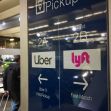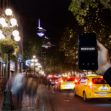Early last week, the Biden Administration withdrew the Independent Contractor Rule, a Trump-era regulation that would have made it difficult for individuals to be classified as employees if they work for app-based companies like Uber, Lyft, and Postmates.
The Trump-era rule was finalized under the previous administration on January 6, 2021, only weeks before Trump left office. The rule clarified the standards and classification between employees and independent contractors and blocked “gig economy” workers from receiving many of the same benefits and protections employees receive, such as overtime pay, unemployment insurance, and healthcare.
Being employed doesn’t automatically make that individual an employee. There are two main categories of those employed: independent contractors and employees. The former is often seen as more flexible, or a side-hustle to bring in extra money outside of an individual’s full-time job. While flexibility is a huge benefit to some, such as stay-at-home parents, students, or those already working full time, there is a debate whether that outweighs the benefits of being an employee.
An employee is covered and protected by both federal and state employment laws, namely the Fair Labor Standards Act (FLSA), which requires a minimum wage, overtime pay, certain recordkeeping, and establishes child labor laws. An employee must earn at least an hourly rate or a salary that is above the state and federal minimum wage, but a contractor enters into a contract that is much more flexible and could end up earning less than minimum wage.
Additionally, companies must pay into state and federal unemployment insurance for their employees but are not required to do so for an independent contractor. This makes an independent contractor more fiscally attractive to companies who rely on a large workforce base, such as app-based companies like Uber and Lyft.
Secretary of Labor Marty Walsh remarked in a statement that blocking this rule “will help preserve essential worker rights and stop the erosion of worker protections that would have occurred had the rule gone into effect.” Secretary Walsh joins the Biden Administration after two terms as mayor of Boston and a former union leader. Since being sworn in, he has publicly advocated for many of America’s gig workers to be classified as employees to ensure they have the same rights and benefits as employees. He walks the fine line between costing companies revenue and profit, which he states is “what we are about in America,” but also ensuring that “success trickles down to the workers.”
The U.S. Chamber of Commerce, a vocal opponent of the change, remarked in a statement they are “disappointed to see the administration withdraw a balanced rule that was well-grounded in the law” and would limit the earning potential for independent workers.
In 2017, the Internal Labor Organization calculated that as many as 55 million U.S. citizens and residents were gig workers, which amounts to over 30% of the entire workforce. As of August 2020, another study taken by Gridwise found that a majority of rideshare drivers are over 30 years of age and predominantly male. May rideshare drivers (48%) are married, and even more (63%) have children. Even more surprising, 62% of rideshare drivers think of their work for app-based companies as a full-time job.
A similar bill already passed in California, but in November 2020, California voters passed Proposition 22, the App-Based Drivers as Contractors and Labor Policies Initiative. Almost 60% of California residents voted in support of the initiative to consider app-based drivers as independent contractors, excluding them from state employment labor laws. While not granting full employment rights, Prop 22 designed and enacted specific labor and wage policies for app-based drivers and companies.
The California law restricts app-based drivers from working more than 12 hours during a 24-hour period and mandates the app-based company must provide healthcare subsidies equivalent to 82% of the California Covered premium for all drivers who average at least 25 hours per week. Companies are also required to provide occupational accident insurance and accidental death insurance to all their drivers.
The campaign to pass Prop 22 was the most expensive in California’s history. DoorDash, Lyft, and Uber each initially invested $30 million into campaign accounts in support of the proposition. By the time the election rolled around, Uber, Lyft, DoorDash, InstaCart, and Postmates had all increased their contributions, helping the campaign reach $205.37 million. Motivated by the passing of the bill, Uber CEO, Dara Khosrowshabi, promised to “more loudly advocate” for laws like Prop 22 across the country.
Opponents to Prop 22 included then-U.S. Senator Kamala Harris, U.S. Senator Bernie Sanders, U.S. Senator Elizabeth Warren, and then U.S. President-elect, Joseph R. Biden. Robert Reich, former U.S. Secretary of Labor called the proposition “great for employers, but [] a huge loss for workers,” stating it will encourage more companies to hire through contracts rather than employees, which would erode “over a century of labor protections.”
Just twelve days after Prop 22 was to go into effect, on January 1, 2021, the Service Employees International Union (SEIU) and four app-based drivers sued the state in Castellanos v. California calling the new law unconstitutional. The president of SEIU California, Bob Schoonover, claimed that the legislation “denies drivers rights under the law in California and makes it nearly impossible for lawmakers to fix these problems.”
In a city known for its taxis and cabs, New York City set the country’s first minimum wage pay for app-based drivers in 2018. The bill guaranteed at least $17 an hour for New York City-based drivers. Lyft criticized the law in a statement claiming the new law will “undermine competition” and “would be a step backward for New Yorkers.” At the time the bill was passed, ride-share app-based drivers were making an average of $11.90 an hour after expenses, well below the city’s minimum wage of $13 an hour.






